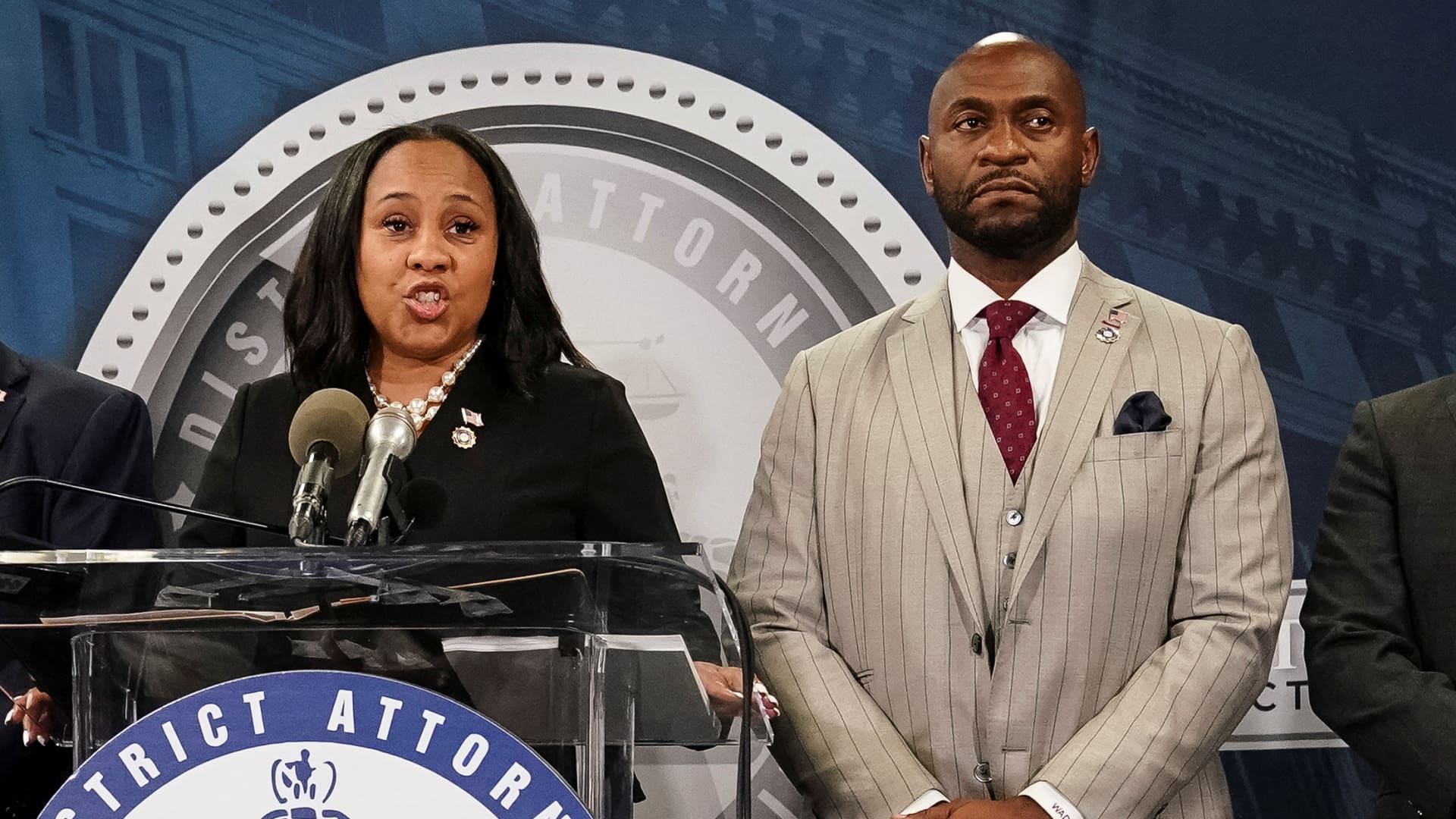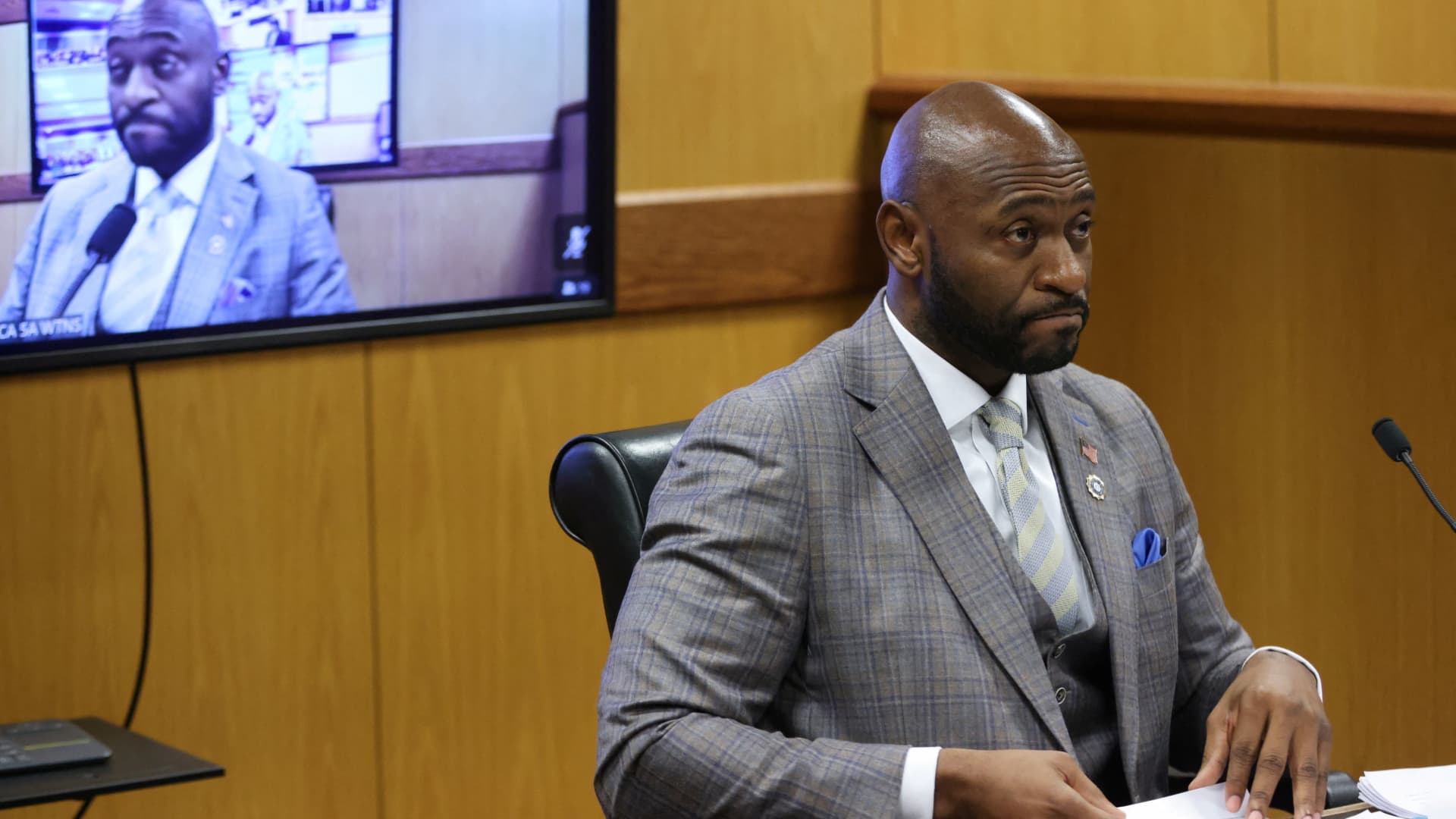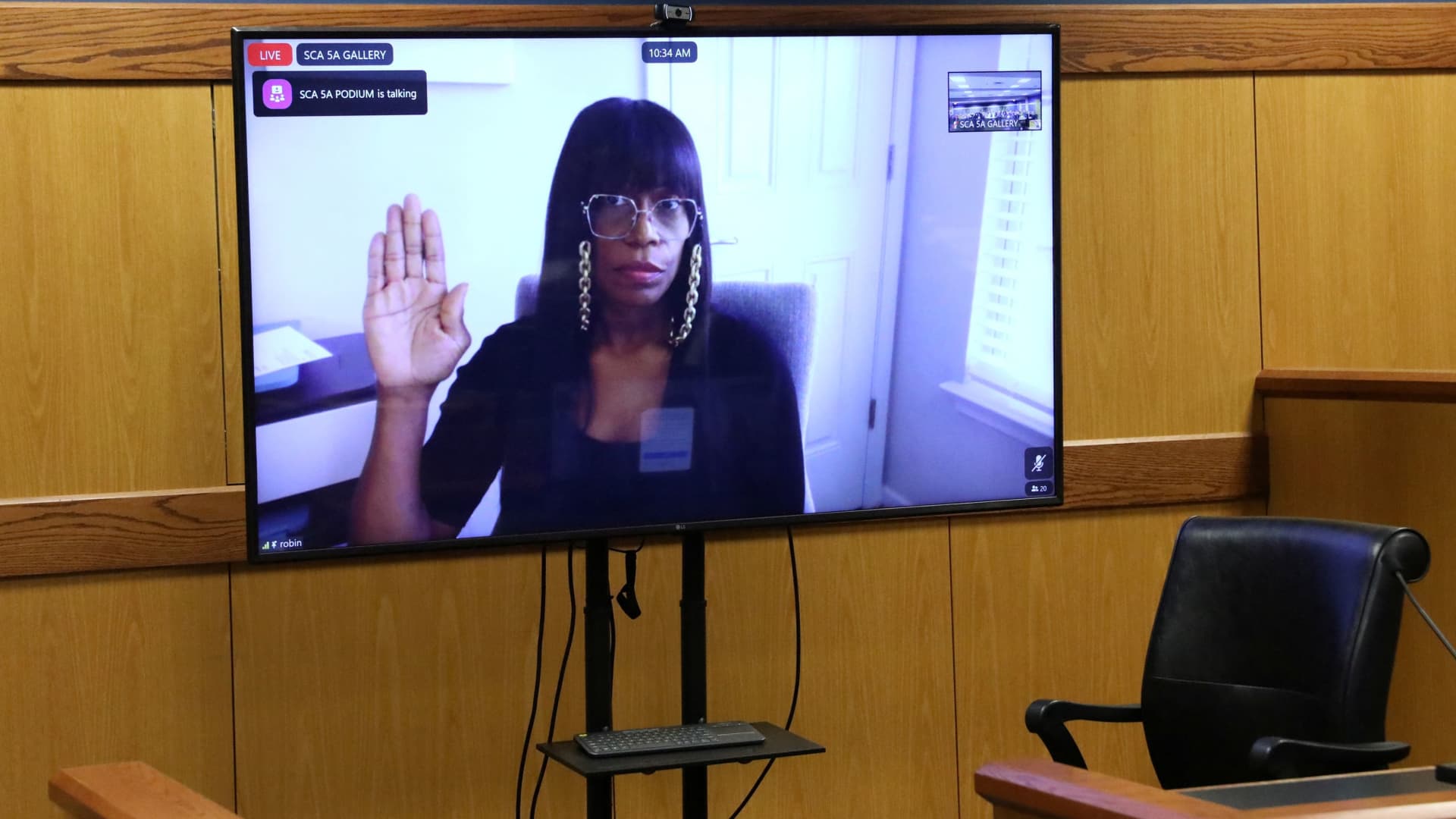
- A Georgia judge presiding over criminal charges against Donald Trump heard arguments about whether to disqualify Fulton County District Attorney Fani Willis.
- The hearing centered on allegations that Willis and special prosecutor Nathan Wade personally benefited from a romantic relationship.
- Robin Yeartie, a former employee in the District Attorney's Office who described herself as a "good friend" of Willis, testified that the relationship between the two prosecutors began earlier than they had claimed.

Fulton County District Attorney Fani Willis on Thursday lashed out at a defense lawyer as she testified before a judge who is considering whether to disqualify her from prosecuting Donald Trump on election interference charges.
"It's ridiculous to me that you lied on Monday and yet here we still are," Willis told the lawyer, Ashleigh Merchant, from the witness stand in Fulton County Superior Court.
On two occasions, Judge Scott McAfee warned Willis that he would have to strike her testimony if she continued to interrupt the questioner.
The D.A.'s extremely tense testimony came hours into a hearing focused on allegations that Willis personally benefited from her romantic relationship with attorney Nathan Wade, one of the top prosecutors in the criminal case.
Willis and Wade have denied that their relationship began prior to November 2021, when Wade became special prosecutor. Before Willis took the stand, however, a witness alleged that the relationship began years before Wade joined the case.
Money Report
The timeline is key to arguments over whether the prosecutors' relationship presents a conflict of interest warranting their disqualification from the criminal case.
Willis eagerly took the stand in the mid-afternoon and quickly accused Merchant of lying to the court.
Get a weekly recap of the latest San Francisco Bay Area housing news. Sign up for NBC Bay Area’s Housing Deconstructed newsletter.
"It seems today that a lawyer writes a lie, and then it's printed for all of the world to see," Willis said.
She also criticized Robin Yeartie, a former employee in the D.A.'s Office and self-described "good friend" of Willis, who testified earlier Thursday that the prosecutors' relationship began in late 2019.
"I certainly do not consider her a friend now," Willis said of Yeartie. "I think that she betrayed our friendship."
Yeartie, appearing before the court on Zoom, had said there was "no doubt" in her mind about the timeline.
But Wade, following Yeartie on the witness stand, testified that his romantic relationship with Willis began in 2022.
Willis also testified that she started seeing Wade in early 2022.
Wade said he exchanged pleasantries with Willis for about three minutes at a 2019 judicial conference. He said he spoke with her two or three more times that year, noting that she felt comfortable asking him about legal issues, such as the racial makeup of certain benches.
The two spoke more frequently in 2020, but it was "not an everyday thing," Wade testified. They spoke even more often in 2021, he said.
Wade also testified that he does not recall traveling with Willis in 2021 or earlier. When asked about trips they later took together, Wade said Willis would reimburse him for parts of that travel in cash.

"We're private people," Wade said, insisting he never discussed his personal relationship in social settings. "Our relationship wasn't a secret, it was just private."
He added that his relationship with Willis ended around June 2023, but that they remain close.
Both the D.A. and the special prosecutor testified that they had no records of those cash payments. Defense attorneys grilled Willis and Wade at length about the private transactions, with one lawyer remarking at one point that the cash-repayment claim "does not pass the smell test."
McAfee dismissed Willis after more than two hours on the stand. The hearing will resume Friday morning with more witness testimony, the judge said.
Willis charged Trump and 18 others with trying to overturn President Joe Biden's victory in Georgia's 2020 election. Trump has pleaded not guilty to 13 criminal counts in the case. A number of Trump's co-defendants have already struck plea deals with prosecutors.
Trump was not present in the Atlanta courtroom. He instead attended a separate hearing in New York City in the hush money criminal case brought by the Manhattan District Attorney.
McAfee on Monday denied Willis' efforts to cancel the evidentiary hearing, saying he believed "it's possible that the facts alleged by the defendant could result in disqualification."
Those remarks came during a hearing on Willis' bid to quash motions from defendant Michael Roman, who first asked to dismiss the indictment and disqualify Willis due to her alleged personal and financial conflicts.

Roman's court filing cited Wade's divorce proceedings, which were under seal at the time, saying they showed him and Willis traveling together to "vacation destinations" and buying cruise tickets.
Willis has called Roman's allegations "factually inaccurate, unsupported, and malicious."
Trump's lawyers joined Roman's motions in late January. The former president has since asserted that the Georgia case has been "totally discredited" by the relationship between Willis and Wade.
The district attorney in an early February court filing had disputed multiple allegations put forward by Roman's attorneys, even as she and Wade admitted the relationship.
She denied that their relationship began prior to Wade becoming special prosecutor in the case. She also denied that the relationship affected their "exercise of any prosecutorial discretion."
Wade, in an affidavit included in Willis' filing, added that he has "no financial interest" in the outcome of the case, and that "No funds paid to me in compensation for my role as Special Prosecutor have been shared with or provided to District Attorney Willis."
Willis "received no funds or personal financial gain from my position as Special Prosecutor," he wrote.
The morning session of Thursday's hearing was frequently derailed by objections from the state's lawyers, as well as numerous disputes over whether some witness testimony was shielded by attorney-client privilege.
Terrence Bradley, Wade's divorce lawyer, was the first witness called to the stand, but he was dismissed amid a privilege dispute after answering just a handful of questions.
Yeartie followed, testifying that she witnessed Willis and Wade being "affectionate" prior to November 2021.
On cross-examination, Yeartie said that she had been written up once for poor performance at her job at the D.A.'s office, and that she resigned from the office under the impression that she would otherwise be let go.






